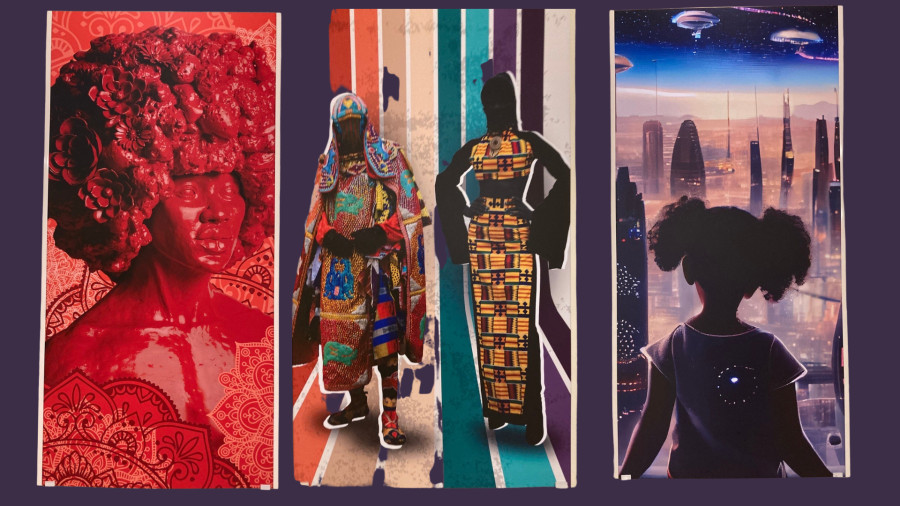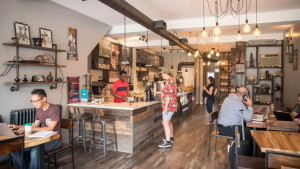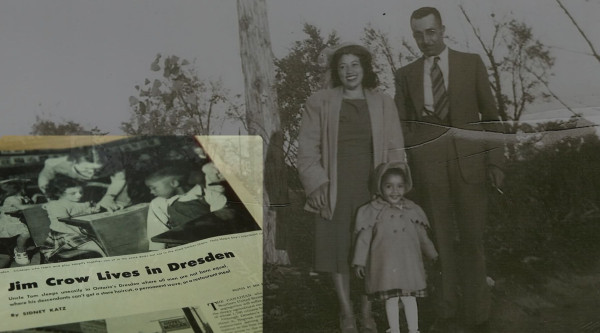There was a steel pan band playing, Grace sodas and doubles were served. Speakers cussed, told jokes and spoke patois; there were spoken word and R&B performances. Black and non-Black attendees talked candidly about their experiences with racism, the importance of inclusion, and continuing on a path of progress.
It felt familiar, but more importantly, it felt celebratory — it was the most comfortable I’d felt in the two years I’ve been working there. The evening was all about Black joy, Black excellence and Black pride. It was a far cry from how I experienced Black History Month growing up.
I remember lessons being extremely negative and disheartening and a little traumatic when I look back with hindsight.
We learned about the North Atlantic slave trade, plantation life, lynchings, segregation, and the fight for civil rights in America. Most of the time, it felt like a story of heroes and villains, perpetrators and victims, but it never felt good to be on the “good” side. I didn’t realize it then, but I wasn't really learning about Black people or cultures; I was learning what was thought about us and done to us for hundreds of years. There was no agency, no self-determination, and no pride. White Cruelty Month seemed more accurate.
Even though I developed a great deal of respect for people like Muhammad Ali and Malcolm X because of their activism and courage, I never wanted to be like them. I didn’t want to have to be like them. They were remarkable in part because of the disgusting racism they fought to overcome. That was never something I wanted to celebrate.
The colour of hate
I was six or seven when I realized I was Black in terms of race. But it wasn’t until grade four that I started learning what being Black meant socially. I discovered that some people viewed me as ugly, unintelligent, inferior (except for sports), impure, prone to crime, less-than-human and unworthy of life, all because I’m Black.
Teachers tried to assure us that these beliefs were categorically false and immoral and that people don’t feel that way or treat people like that anymore, but I wasn’t convinced. I remember looking around the class at my blonde-haired-blue-eyed friends, and I couldn't help but get sad knowing that our friendship would’ve been impossible in another life.
Although it was clear slavery and racist stereotypes were wrong, I couldn’t shake the fear of being thought of or treated as inferior because of my race. At times, I felt I had to prove that I wasn’t like the negative stereotypes people had about Black folks. I thought being a particular way would protect me from hate and discrimination. There’s definitely some internalized racism and self-hate that I’ve had to work through in my adolescence.
This didn’t all stem from Black History Month teachings; these feelings also arose from everyday experiences as a Black person in a racist world. But how Black History Month was taught didn’t instill a sense of pride in me, and that didn’t seem to be the goal.
Ancestral knowledge
Part of my unlearning process involves learning about my personal history on my terms. I’ve added Jamaica and Trinidad’s Independence Days to my calendar. I've asked my grandmothers to teach me their recipes. A few years ago, I took a DNA test and discovered that my blood has roots in Cameroon and Nigeria. I resolved to play mas in Caribana 2020 before the pandemic struck, but that didn’t happen. So, last summer, I took a dance workshop on Caribbean Carnival traditions.
Our instructor, Jaz, explained how our ancestors used music, movement, costumes and sound to “absorb our individual, communal and ancestral healing energy” and that they used Carnival “to fuel and refuel the energy they needed to survive and push through.” Suddenly the feelings I'd gotten dancing at family functions made more sense.
I left the workshop feeling joyful, informed, connected to everyone and more grounded in myself. I felt physically relaxed yet energized despite moving around for an hour and a half. I remember thinking, “I wish I had known this earlier.” Not only would I have a retort when someone dismissed Carnival as merely an excuse for people to wear skimpy clothing and “get on bad,” but I also had a tool to ground me that was rooted in positivity and my culture that I could do anywhere, anytime.
It was powerful.
In his song “King’s Disease,” Nas raps, “The stupidest part of Africa produced Blacks that started algebra // Proof, facts, imagine if you knew that as a child, bruh.”
It’s been statistically proven that perceived negative stereotypes about a group can negatively impact the performance of people from that group. For example, when it comes to taking tests. Maybe I’m oversimplifying, but who knows what kind of a difference that one fact could have on countless Black students' lives. I imagine it would instill confidence.
My Black History Month
There seems to be a shift in how Black History Month and Black culture is observed and celebrated, even the reframing of it as “Black Futures Month.” The embrace of natural hairstyles, phrases like “king” and “queen,” “brother” “Black excellence,” “Black Girl Magic,” and “Black Boy Joy” today are commonplace and it’s a welcome change. It’s all about pride.
There's an art exhibit at Union Station in Toronto called “I Am Still Here: Black Joy As Resistance.” The exhibit’s description captures what I think Black History Month should be about.
“The exhibition explores what joy as an act of resistance means while subverting the common associations of Black History and identity with sadness and mourning.”
For me, Black History Month should be dedicated to learning about and celebrating Blackness. That includes Black culture, Black creators, Black food, prominent Black figures and history. We can’t ignore history, but it can’t be the sole focus.
If we’re going to talk about history, let’s at least have a more productive conversation about how history influences the present, like the connection between slavery and the police.
It boils down to being a month dedicated to Black people’s humanity and reinforcing that idea to Black and non-Black people — which is not something we’re afforded year-round. It’s a time to strengthen your sense of self-worth and self-understanding while also developing a deeper understanding of how the world is organized for Black people. Black History Month offers everyone the opportunity to reflect on themselves and the societies they live in.
So let’s have more kente cloth and fewer black and white photos. The principles and importance of Black History Month need to shift so that they last well beyond February if they’re going to have real meaning and a lasting impact on an individual and societal level.

 By
By 








